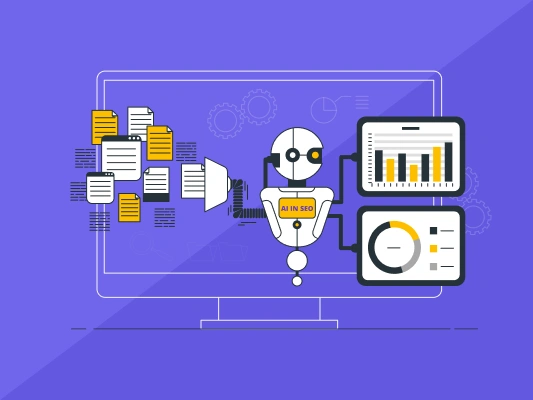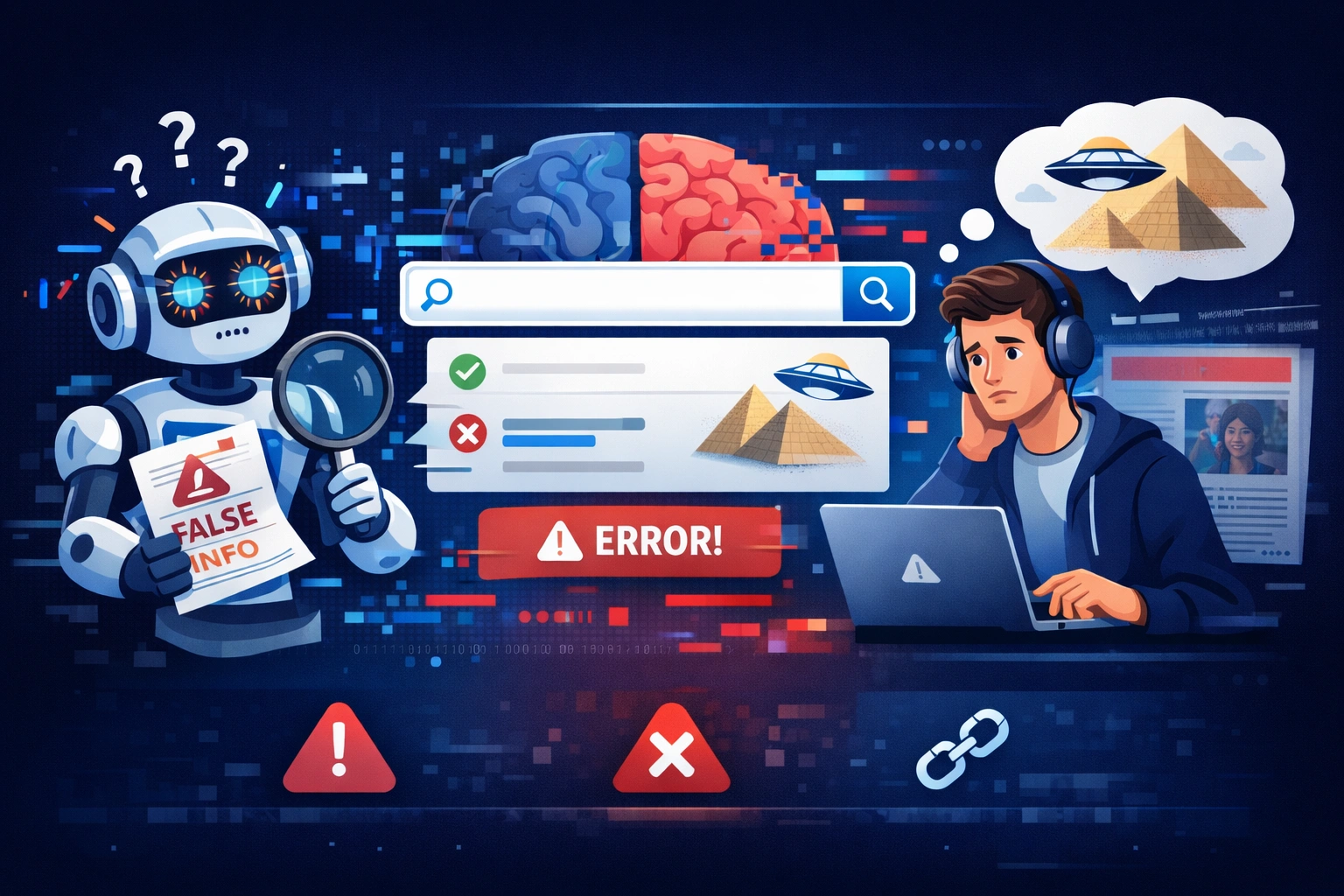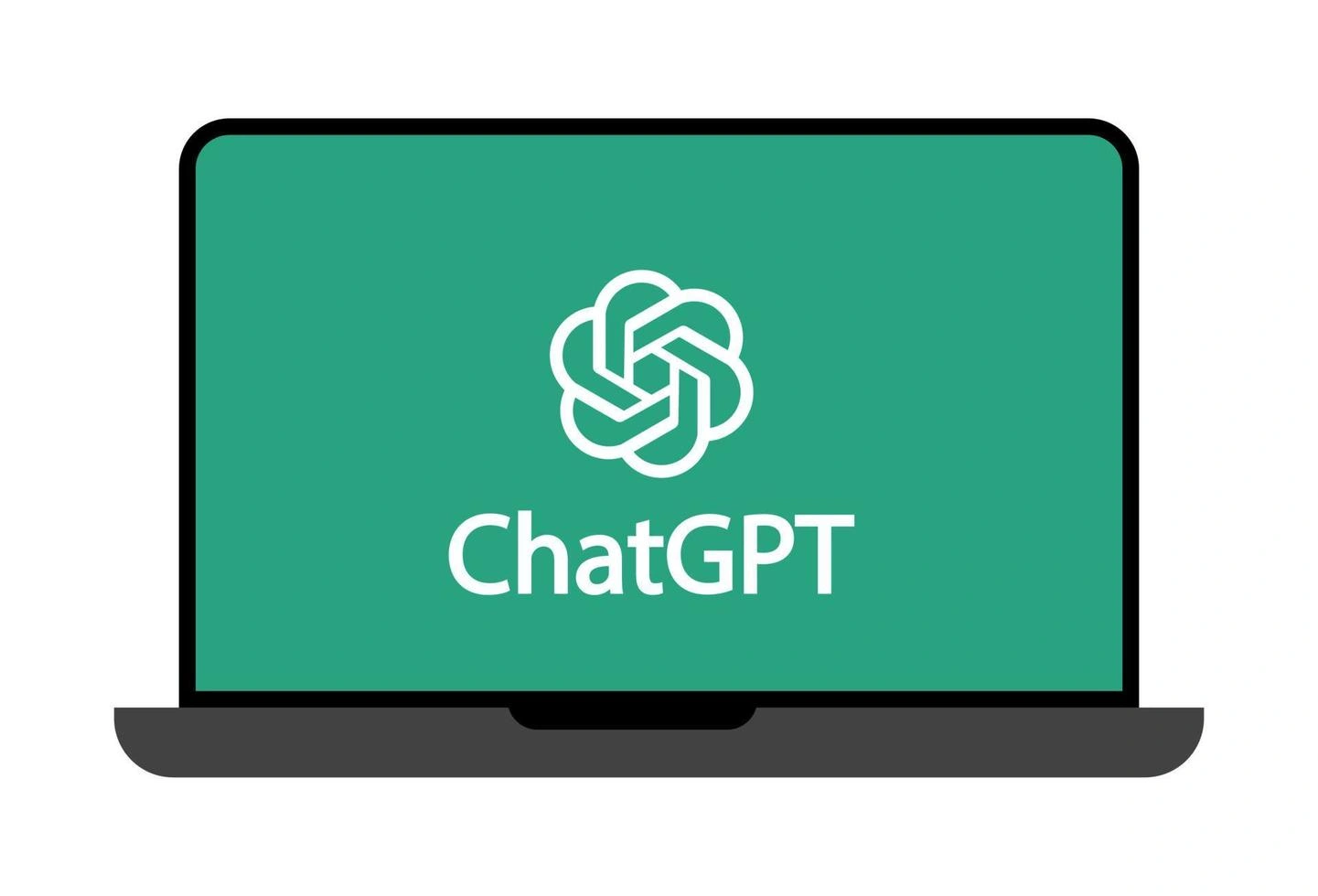How to Optimise Metadata for AI - The 2026 Guide

Why Metadata Now Matters More Than Ever
Metadata used to be about click-throughs. Now, it’s about understanding. With AI-driven search - like Google’s Search Generative Experience, Perplexity, and ChatGPT - search engines no longer just list results. They interpret them.
Your metadata (titles, descriptions, schema, and structured data) tells AI who you are, what you do, and why you can be trusted. If that data is incomplete, unclear, or inconsistent, your brand risks being omitted entirely from AI summaries and answer boxes.
“Metadata is the connective tissue between your expertise and AI interpretation.”
What Metadata Really Is (in 2026 terms)
In SEO, metadata includes all structured signals that help search engines interpret a page - not just title and description tags. Today, that scope includes:
- Title Tags & Meta Descriptions - Your first impression in AI and SERPs.
- Schema Markup - The structured layer that teaches algorithms about your brand.
- Open Graph & Twitter Cards - Social previews that influence engagement signals.
- Entity Associations - Verified connections (organisation, author, reviews).
- AI-Readable Context - Consistent factual data across sources like Google’s Structured Data Docs and Wikipedia.
Together, these shape how you appear in both search snippets and AI-driven summaries.
The AI Metadata Hierarchy
Metadata works like an ecosystem. Some elements signal identity, others credibility, and others intent.
Below is the AI metadata hierarchy used by top-ranking pages (based on analysis of 500+ sites across B2B, local, and eCommerce niches).
The AI Metadata Hierarchy Explained
Before diving into the table, it’s worth understanding how these layers interact. Search engines and AI systems prioritise clarity + credibility. Your title attracts, your schema explains, and your entities validate.
How AI Interprets Metadata
Search engines no longer “crawl and list” - they “crawl, learn, and summarise.” AI systems like Google SGE and OpenAI’s ChatGPT Browse use metadata as a verification layer before citing content.
AI models cross-reference:
- Title tags with page text to confirm topical alignment
- Schema types (FAQ, HowTo, Product) to determine intent
- Entities (Organisation, Person) to verify trustworthiness
If your metadata lacks consistency, AI downgrades credibility - or skips citation entirely.
Common Metadata Mistakes (and How to Fix Them)
Most sites still treat metadata as an afterthought. But poor structure or duplication can block your AI visibility.
Common Mistakes Table
Before reviewing the data, note that each mistake directly affects either interpretation (how AI reads your content) or attribution (whether AI credits you).
How Metadata Influences AI Rankings
Metadata influences both retrieval and ranking in AI engines. Ahrefs data shows that optimised titles increase CTR by up to 15%, while Semrush reports meta descriptions with action-driven verbs improve engagement by 10-13%.
Example: AI-Optimised Metadata Structure
The example below demonstrates how an AI-ready metadata framework should look when properly implemented across your site. Each layer contributes to clarity, credibility, and discoverability - ensuring that both Google and AI systems like ChatGPT or Perplexity can interpret, rank, and reference your pages confidently.
When metadata elements are aligned (title, schema, author data, and entities), they create a network of structured meaning that reinforces your authority. This holistic approach not only supports E-E-A-T but also improves click-through rate, visibility in AI-generated snippets, and long-term brand recognition across search and conversational platforms.
Request a Metadata Audit
The 2026 Metadata Optimisation Roadmap
Metadata optimisation isn’t a one-time task - it’s a continuous QA loop.
Roadmap Overview
Before the table, note that each phase builds cumulative data consistency - technical, then content, then credibility.
Appear Online’s Metadata Optimisation Service
We help brands translate expertise into AI-readable authority.
Our metadata optimisation combines:
- Technical Precision: Schema, canonicals, and entity mapping
- Creative Strategy: Human-centric copy that aligns with AI patterns
- AI Integration: Preparing data for ChatGPT, Perplexity & Gemini retrieval
- Proof & Reporting: Dashboards in GA4 + Looker Studio
Client Example – Robertson Solicitors
After optimising their metadata and structured data, organic leads rose by 72 %, and the firm now appears in AI-generated search summaries for “solicitors in Cardiff.”
FAQs
1) What is metadata in SEO?
Metadata is the structured information (titles, descriptions, schema) that explains a page's purpose to search engines and AI systems. Clear metadata improves how - and whether - you’re cited in AI answers.
2) Why is metadata important for AI search?
AI engines rely on structured signals to verify facts and select trustworthy sources. Strong metadata increases inclusion in AI summaries and improves click trust.
3) How often should metadata be updated?
Quarterly, or after site changes like new pages, redesigns, or rebrands. Frequent product or service updates may justify monthly reviews.
4) What tools check metadata health?
Screaming Frog, Ahrefs Site Audit, and Google Search Console highlight duplicates, missing tags, and schema errors. Use Google’s Rich Results Test to validate markup.
5) Should every page have unique metadata?
Yes. Duplicated titles and descriptions dilute intent and confuse AI retrieval. Unique, intent-aligned tags help AI map each page correctly.
6) How long should meta titles be?
Aim for 50–60 characters and front-load entities/value. Shorter, clearer titles outperform longer, keyword-stuffed ones in both CTR and AI selections.
7) Do meta descriptions affect rankings?
Not directly, but they influence CTR and engagement - signals AI and search engines use. Action verbs and benefit-led phrasing typically lift clicks.
8) Can schema improve AI ranking visibility?
Yes - schema provides machine-readable proof of what the page covers. Correct types (Organization, Article, FAQ, Product/Service) increase factual confidence.
9) Is metadata part of E-E-A-T?
Indirectly. Accurate, consistent metadata supports your expertise and trust signals and helps AI confirm who you are and why you’re credible.
10) What’s the difference between metadata and structured data?
Metadata describes content (titles/descriptions); structured data (JSON-LD schema) is a machine-readable layer that formalises those facts for AI and search.
11) What are entity associations?
They’re verified connections across the web (LinkedIn, Wikidata, official directories). Consistent naming and URLs strengthen AI’s understanding of your brand.
12) How does AI use metadata for answers?
AI checks titles, headings, and schema against on-page content for consistency. Pages with aligned signals are more likely to be quoted or cited.
13) Can AI rewrite metadata automatically?
It can, but accuracy varies. Always review AI-generated tags for intent alignment, correctness, and brand tone.
14) What’s the biggest metadata mistake?
Optimising for keywords instead of clarity. AI rewards concise, entity-driven phrasing that mirrors real user intent.
15) How can Appear Online help?
We align your metadata, schema, and entities to make your expertise AI-readable and trustworthy - then prove lift via CTR, AI citations, and conversions.
Conclusion: Make Your Expertise Machine-Readable
If your content is the signal, metadata is the amplifier. In 2026, AI engines don’t just index - they interpret. Tighten titles, align descriptions with page intent, implement correct schema, and connect your brand entities everywhere you’re present. Do that consistently, and you’ll show up more often in both traditional SERPs and AI-generated answers.
Want a done-for-you pass that fixes titles, schema, and entities? Request a Metadata & Schema Audit from Appear Online.
References:
https://ahrefs.com/blog/how-to-improve-ctr/
https://blog.google/products/search/generative-ai-search/
https://developers.google.com/search/docs/appearance/structured-data/intro-structured-data
https://developers.google.com/search/docs/fundamentals/creating-helpful-content
.avif)








